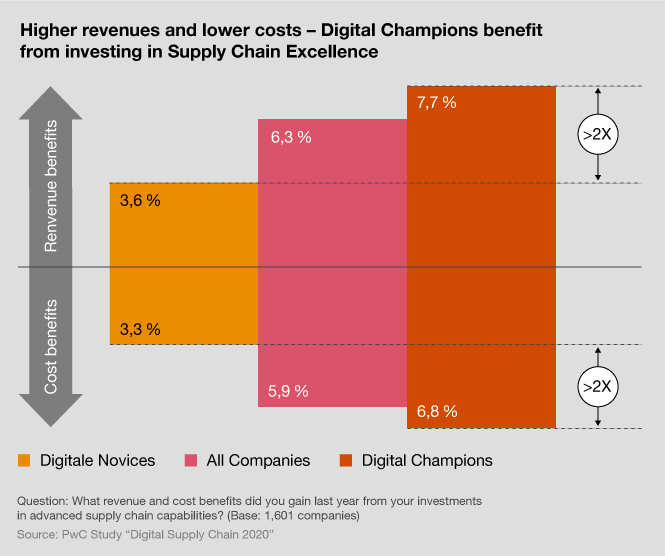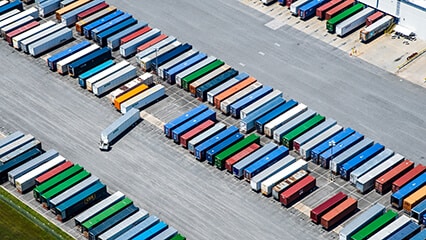
Customer behaviours and expectations are changing dramatically, challenging the established supply chain and operations setups of leading industrial companies. Supply chains are increasingly facing major disruptions, with the impact of COVID-19 at the top of the list. And digital technologies are affecting every aspect of how companies run their businesses. To succeed in this evolving marketplace, companies need to transform linear supply chains into autonomous supply chain ecosystems.
“Developing advanced supply chain capabilities makes strong economic sense and gives companies the agility needed to respond to disruptions.”
"1.8 years payback period of investing into advanced supply chain capabilities. And that’s just the beginning."
In our recent research, we surveyed more than 1,600 supply chain executives to identify those companies that are ahead of the curve on supply chain excellence. We call them Digital Supply Chain Champions, and they are proving that investments pay off in.




This is a modal window.
This is a modal window.

How should companies set up supply chain teams and communities?
Set up cross-functional teams, communities and supply chain centres of excellence to drive advanced capabilities by applying continuous development and deployment approaches.
What should companies do to make sure employees have the right skills?
Establish a self-learning and continuously improving organisation through attracting digital talent and digital upskilling of the supply chain workforce.
What’s most important when it comes to IT?Establish a state-of-the-art technology backbone and embed advanced analytics and IT into supply chain to enable business-led transformations by bringing business, processes, IT and advanced analytics together.
Who should be involved?
Establish new collaboration models with an extended partner ecosystem to drive innovation in the supply chain

In a live webinar on April 21, we launched our digital supply chain study “Connected and autonomous supply chain ecosystems 2025”. During the webinar four leading companies, Continental, Nokia, IKEA and Bayer Crop Science, presented practical examples of innovative supply chain solutions. Did you miss the live webinar?


